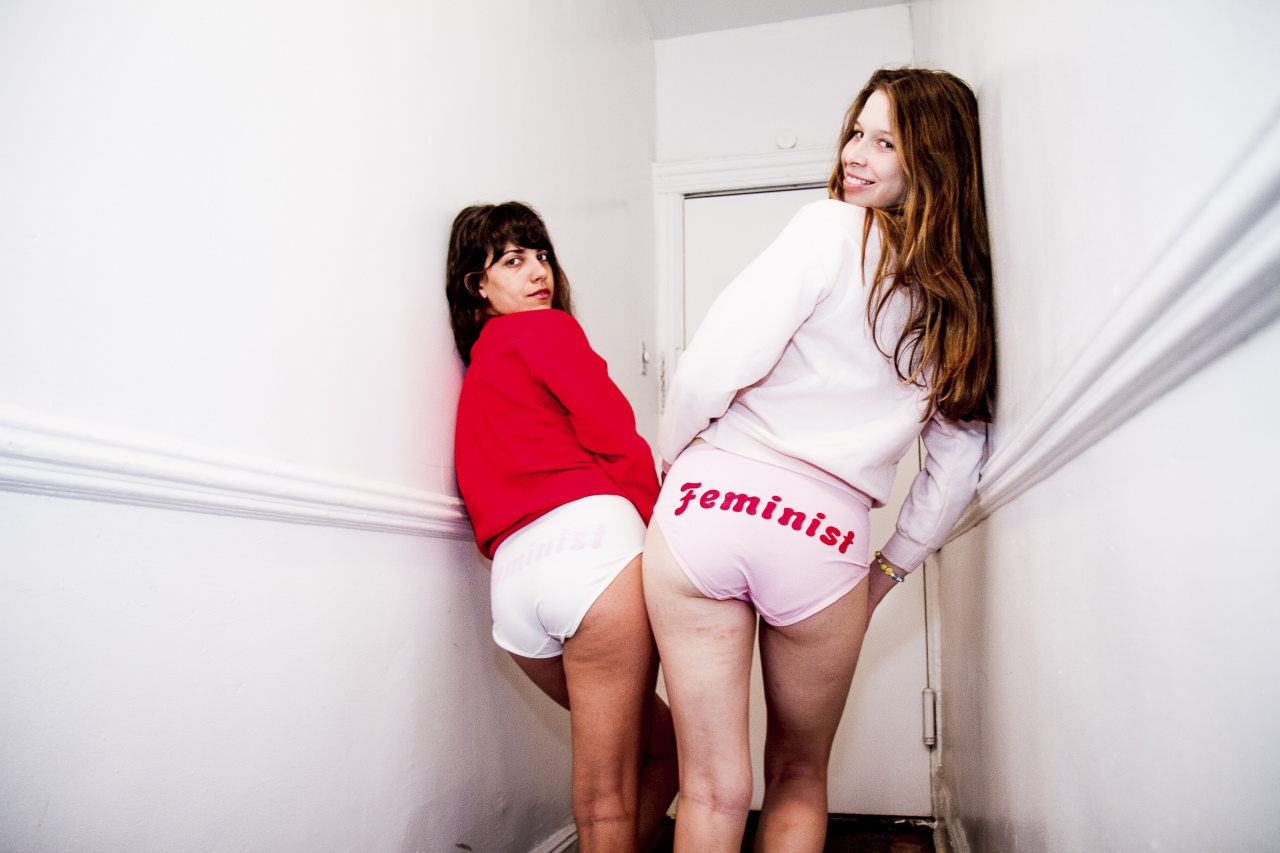I scroll through my Facebook newsfeed on average 10 times a day, mostly to be inundated with advertisements that more often than not, appeal to my interests and aesthetic.
I’m not usually bothered by the fact that Facebook probably knows how my feet smell after I run without socks and in whose basement I lost my virginity, but a few days ago the secret algorithm sauce left a bad taste in my mouth.
I was perusing the social media site, just in case some of my old high school acquaintances were in desperate need of prayers, when I came across an advertisement that made me yank my first edition copy of “The Feminine Mystique” from under my pillow and throw it against my bedroom wall. Those Zuckerbots had the gall to suggest I purchase a pair of panties with the word “feminist” plastered across the ass. Never mind that I’m offended by any message wedging its way into my butt crack (I boycotted Juicy sweatpants in seventh grade for this very reason), but I was also insulted by…uh. Well, I wasn’t quite sure.
I’ve always considered myself to be a feminist, ever since I tricked my mom into renting Spice World at Blockbuster (“Oh, it’s not about the Silk Road?”). So how harmful could it be to announce myself as such to anyone who may see me in my skivvies? I couldn’t articulate why the panties or the ad were so repulsive, but I knew that for whatever reason, all of it insulted my delicate liberal sensibilities.
Superficially, I was bothered by how tactless it is to label oneself as anything via a message on a pair of underwear, or even a t-shirt. If you think physically labeling yourself a feminist makes you one, then you’re clueless and you should probably just buy the panties. And if you are attempting to bandwagon a trendy movement that you don’t really understand, then you’re clueless and you should probably just buy the panties.
So in my mind, a “real” feminist would never consider buying the panties, because she wouldn’t feel the need to validate her identity in such a simplistically crude way.
Except “real” feminists do tout their feminist status as a badge of honor, and sometimes crudely. Ask anyone. It’s mostly annoying and mostly necessary, but part of being a feminist is being proud of being a feminist. In fact, women (and men) who don’t classify themselves as feminists are largely considered regressive and ignorant.
By not embracing the term, whether you realize it or not, you’re conveying a certain amount of apathy toward equality. And by eschewing the label, you potentially deprive others of learning about the movement.
But that’s not to say that feminism, as we’ve come to know it, is not problematic in its own ways. It’s often exclusionary, because it has become so inextricably tied with academia that its supposedly accessible tenets are actually relatively inaccessible. And historically it’s been fairly white-centric, often disregarding the experiences of inequality unique to women of color.
I can’t chalk up my revulsion toward the panties to pure snobbery. I don’t think feminism is too sophisticated to be dumbed-down by apparel that can be found in a boardwalk shop on a Florida beach, because feminists can have bad taste, too. I’ve always wanted to be a riot grrrl, but white people dreds are against my religion.
Really it’s the commodification of the movement that is so deplorable to me — that something so important can be reduced to a tagline on a pair of underwear to profit and perpetuate the very system that feminism has railed against for hundreds of years. And even more disturbing is that Facebook, a company built and run mostly by men, would use my interest in women’s rights as click-bait.
Not only is half the population’s struggle reduced to a pair of boyshorts, but Facebook smart guys coded a way to figure out who would be most susceptible to such a disingenuous and blatant marketing ploy. And frankly, I was insulted that the computer brains thought I’d be one of the suckers.
In the late 1990s, I was becoming woman, still working on roar, and completely enamored with all things “girl power.” The postmodern feminism of the 90s was premised on bodies, sex and power as a means of reclaiming identity and subverting the status quo.
Femme punk emerged on college campuses in the earlier part of the decade and gained as much mainstream success as a feminist punk movement could. Record labels were eager to ride the third feminist wave all the way to the bank — and thus, the Spice Girls were born.
The Spice Girls represented every facet of womanhood a preteen could fathom: Sporty (sporty), Ginger (red-head), Baby (baby), Posh (rich), Scary (funky black girl). The key to the group’s success was to make one of the most marketable demographics feel empowered with catchy songs about the ever-elusive “zigazig ha.”
The girl group was hyper-sexualized and embodied some of the more vapid aspects of postmodern feminism. While they thrust “girl power” into the mainstream dialogue with glitter keychains and plastic lunch boxes, they also appropriated the feminist movement in a way that would appeal to young girls.
In some sense they diluted the message of the second-wave feminists who rallied for systemic and political change, but they also made the movement accessible to a wider, younger audience. The Spice Girls commercialized the postmodern sex-positive approach that college girls spouted a few years earlier. But is this bad?
Women of the 90s didn’t have to contend with the same inequality as women in previous generations, so naturally, their brand of feminism was different. And the commercialization of the cause may have raised awareness of women’s issues.
Feminism, however, is an intellectual endeavor and to commodify it is to tamper with its meaning. When any philosophy becomes a product its message inevitably changes — like spoiled suburban kids in middle America wearing Che Guevara shirts as fashion statements.
That’s not to say that feminism should solely exist within the echelons of higher education, because this also warps its message. Feminism, if implemented in a way that’s not profitable, needs a broad base of support to be relevant in society.
Anyway, I bought the panties.

















l